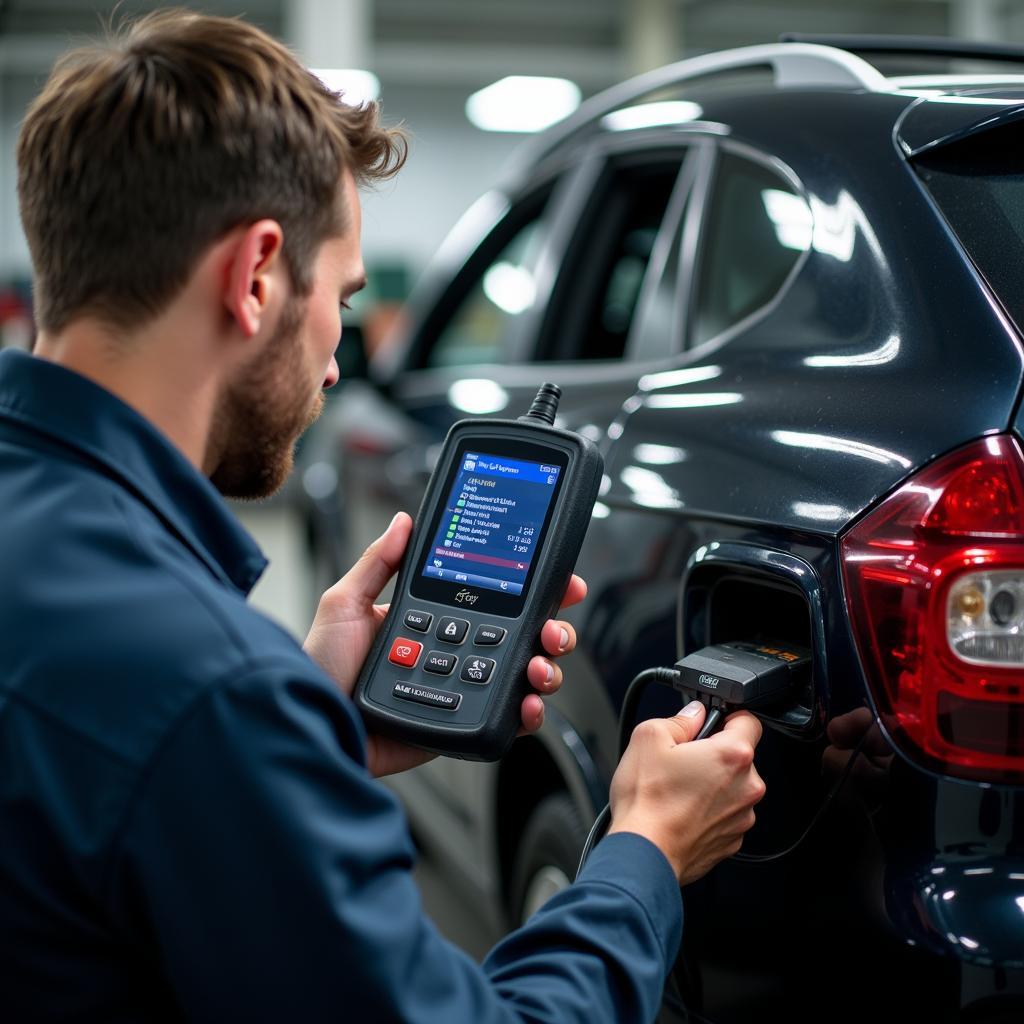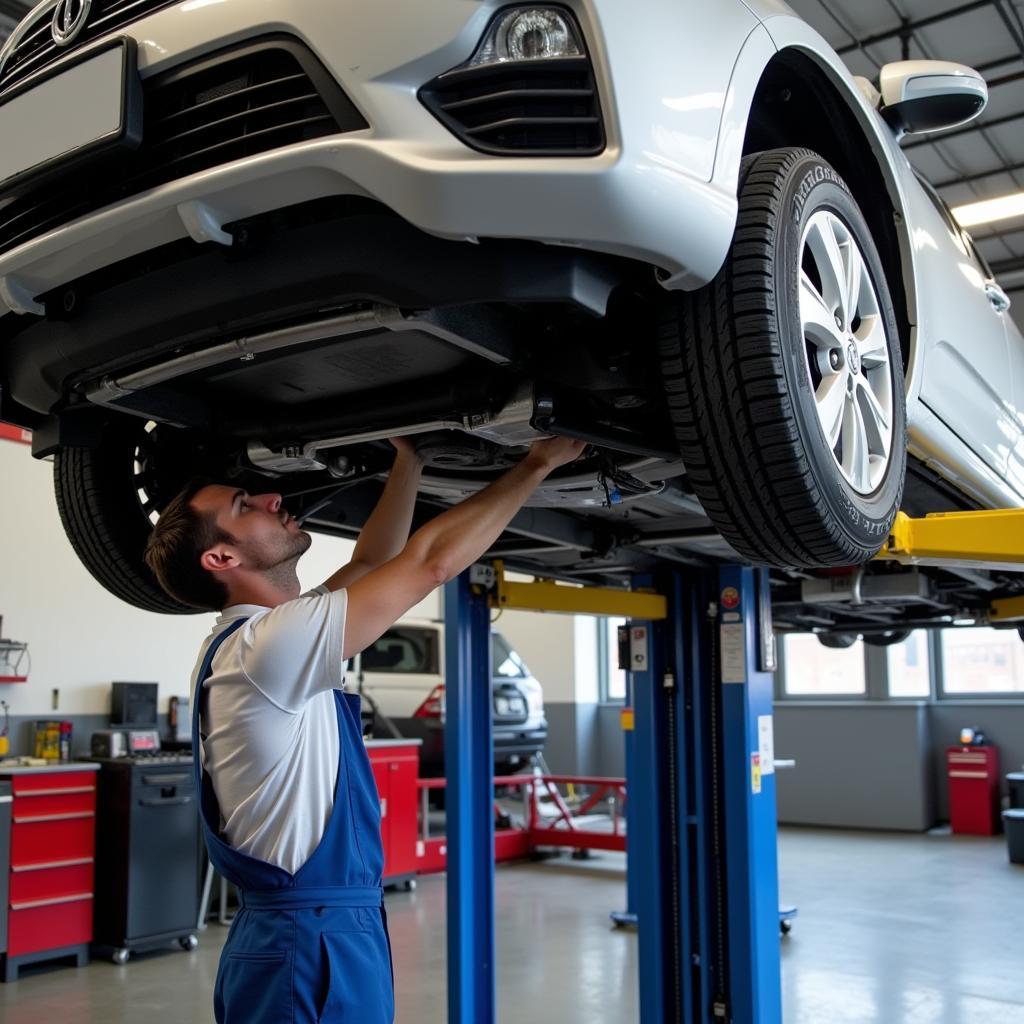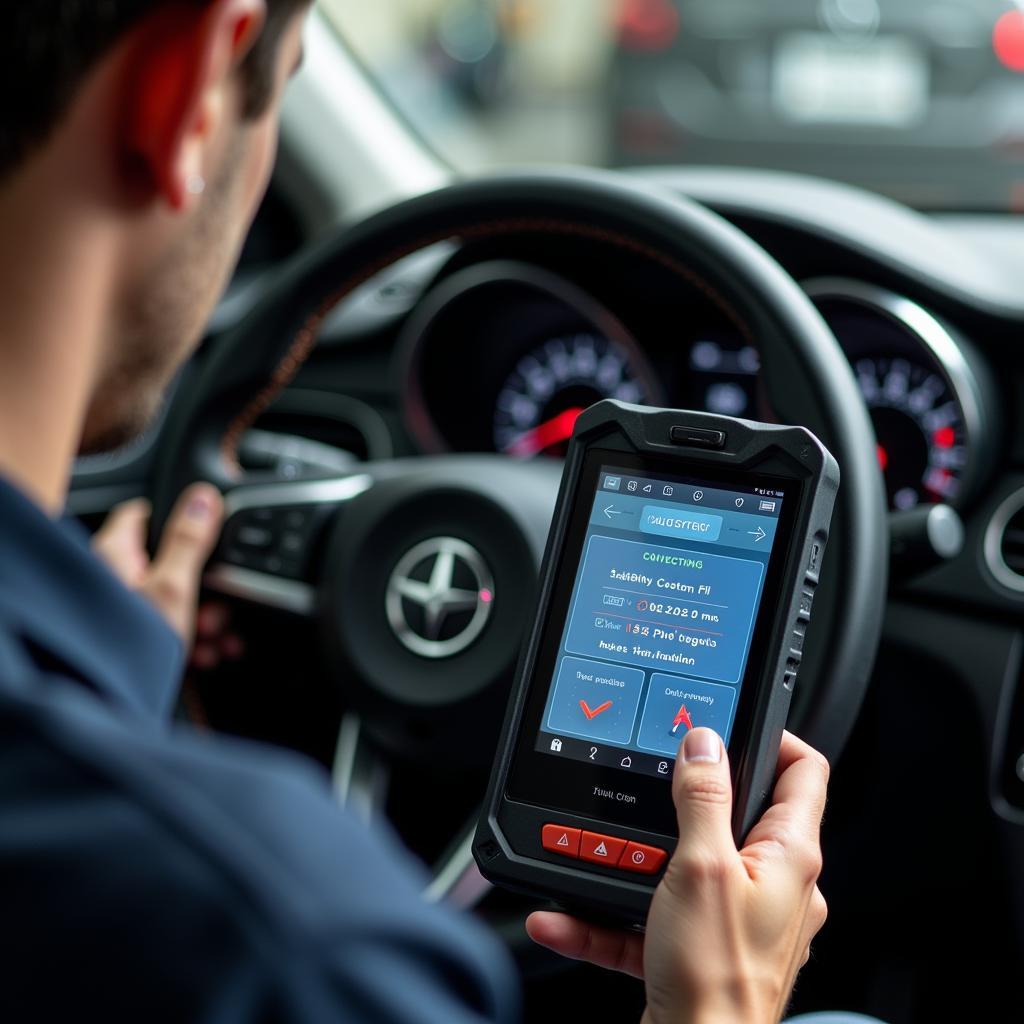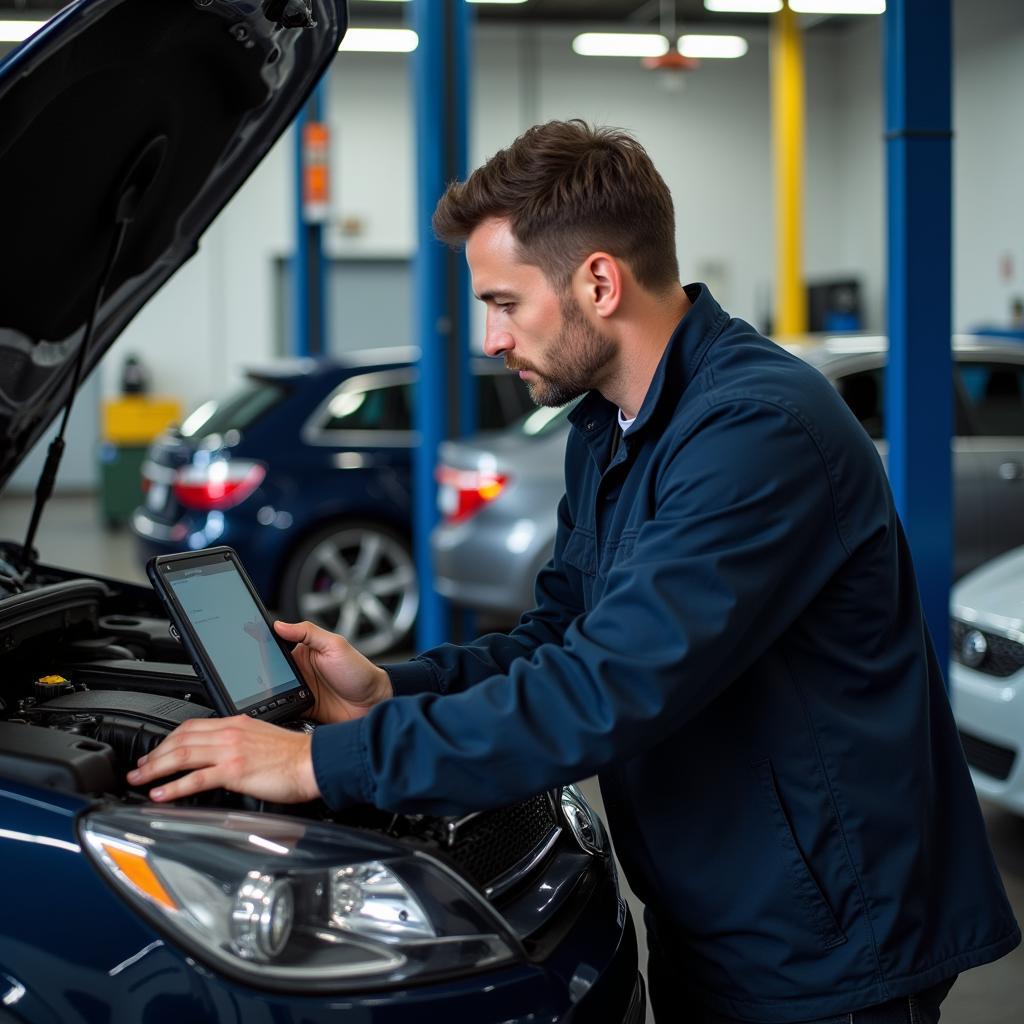How to Service the Electronic Stability Control on My Car
The electronic stability control (ESC) is a crucial safety feature in your car that helps you maintain control during challenging driving situations. It does this by automatically applying the brakes to individual wheels, preventing skids and loss of control. While the system itself is generally reliable, understanding how to service it can ensure optimal performance and safety on the road.
Understanding Your Car’s Electronic Stability Control System
Before diving into servicing, it’s essential to understand the basic components of your ESC system.
- Sensors: These diligent components constantly monitor your car’s speed, steering angle, and rotation. They act like the eyes and ears of the system, feeding vital information to the electronic control unit.
- Electronic Control Unit (ECU): This is the brain of the system, processing data from the sensors in real-time. If the ECU detects any discrepancies between the driver’s input and the vehicle’s actual movement, it takes action.
- Hydraulic Modulator: Once the ECU decides on the necessary adjustments, it commands the hydraulic modulator to control the brake pressure to individual wheels.
Common Signs Your ESC System Needs Attention
Your car is designed to communicate with you, and when it comes to the ESC system, there are a few telltale signs that it might need attention:
- Dashboard Warning Light: The most obvious sign is the illumination of the ESC warning light on your dashboard. This often resembles a car with skid marks, but always refer to your owner’s manual for the specific symbol for your make and model.
- Unusual Braking During Turns: If you notice the brakes engaging unexpectedly, especially during turns when no skidding is occurring, this could indicate a faulty sensor or a problem with the ECU.
- Traction Control Issues: Since the traction control system often works in conjunction with ESC, any noticeable decrease in traction control performance could be related to your ESC system.
How to Service Your Electronic Stability Control
 Mechanic inspecting car's ESC system
Mechanic inspecting car's ESC system
Servicing your ESC system primarily involves regular checks and maintenance rather than DIY repairs. Here’s a breakdown:
- Regular Inspections: Just like other critical safety systems, your ESC system should be inspected regularly by a qualified mechanic. They will check the system for any stored error codes, ensuring sensors are working correctly, and examining the overall health of the system.
- Brake Fluid Flush: Since the ESC relies on your car’s braking system, it’s crucial to have your brake fluid flushed according to the manufacturer’s recommended intervals. This ensures the hydraulic system operates at peak efficiency.
- Sensor Cleaning: While not a routine maintenance task, if you frequently drive in harsh conditions with significant dust, mud, or debris, it’s a good idea to have the sensors cleaned by a professional.
- Addressing Warning Lights: Never ignore an illuminated ESC warning light. While it might be a minor glitch, it’s crucial to have a mechanic diagnose the issue and perform any necessary repairs.
The Importance of Professional Servicing
While some car maintenance tasks can be handled by car enthusiasts, the ESC system is complex and intricately tied to your car’s safety. Attempting DIY repairs on the ESC system can lead to further damage and compromise your safety on the road.
 Car on a lift for ESC repair
Car on a lift for ESC repair
Conclusion
Regular servicing of your car’s electronic stability control system is essential for ensuring optimal performance and your safety on the road. By understanding the signs of potential issues and following recommended maintenance practices, you can keep this critical safety feature functioning correctly for miles to come. Remember, when it comes to your ESC system, professional expertise is always the safest option.
FAQs
1. How often should I have my ESC system serviced? It’s best to consult your car’s owner’s manual for specific recommendations, but generally, an inspection during regular maintenance checks is a good practice.
2. Can I drive my car with the ESC warning light on? While technically possible, it’s highly discouraged. The warning light indicates a potential issue, and continuing to drive could put you at risk.
3. Is it expensive to repair an ESC system? The cost can vary greatly depending on the specific issue and car model.
 Modern diagnostic tool for cars
Modern diagnostic tool for cars
4. Can I disable my ESC system? Some cars allow temporary disabling of the ESC system, often for specific driving situations like getting unstuck in snow. However, it’s crucial to re-engage the system as soon as possible.
5. What should I do if my ESC warning light flashes during driving? If the light flashes, it means the system is actively engaging. Exercise caution, reduce speed, and avoid sudden maneuvers.
Need help with your car’s Electronic Stability Control? Contact us via WhatsApp: +1(641)206-8880 or Email: [email protected]. Our team of experts is available 24/7 to assist you.

